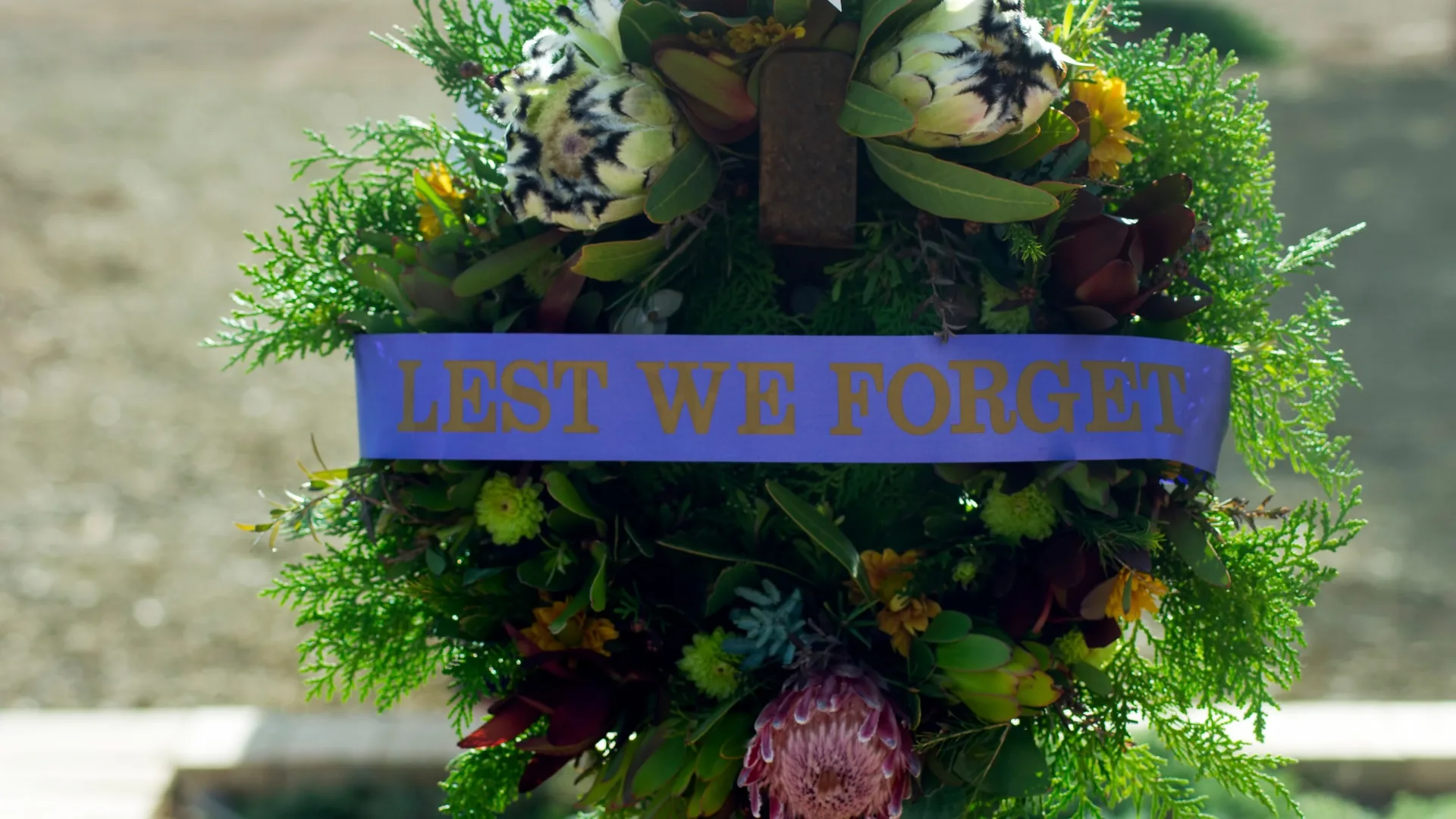By Steve (Anastasios) Kyritsis OAM
It has been said many times that Australia came of age one morning on April 25, 1915, 13 years after its declaration as an independent nation.
This may be true, and for that reason we give great value to this date in relation to the others in our calendar. The purpose is not to celebrate a great military victory, as the landing and subsequent battle of Gallipoli did not bring such a result.
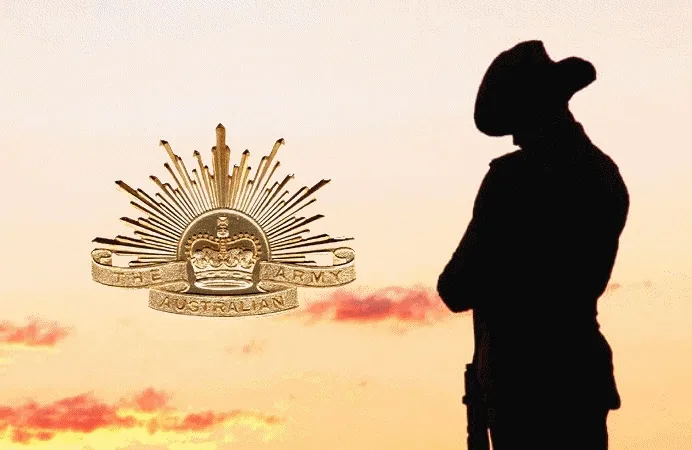
The ships set sail from their bases at 3:30 am, a night so dark that even the coastline was not visible, and the ANZAC forces landed in an area that did not give them an advantage. At first, they faced light fire from the Turkish defenders, but the Turkish positions were quickly reinforced and shortly after dawn the Australians and New Zealanders faced a storm of rifle and machine-gun fire from above.
At the end of the first day, 2,000 men lay dead for an insignificant success, namely the control of an area of six square kilometres and the advance to a distance of one kilometre inland, where the ANZAC troops remained desperately in a very limited area.
Other battles took place in the following days, but the entire campaign was a military disaster from all points of view, except for the well-planned and successful evacuation that took place eight months later.
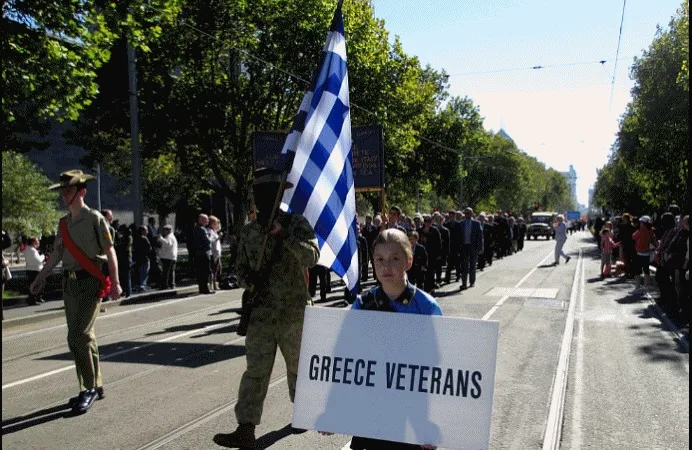
The total number of Allied casualties in the Gallipoli campaign was 250,000, of whom 10,000 were Australians and New Zealanders.
But of course, this day is not to remember Gallipoli or the First World War. It is a day that we have all chosen to honour all those men and women who put their lives at risk and in many cases made the ultimate sacrifice, giving their lives.
We also recognise the losses and sacrifices of their families. These men and women did not start the war they were taking part in. Their participation in the war was the responsibility of the government of the time, and as is known, the government is the representative of the people of Australia. Therefore, the sailors, soldiers, airmen and women soldiers were fighting on behalf of the entire people of Australia.
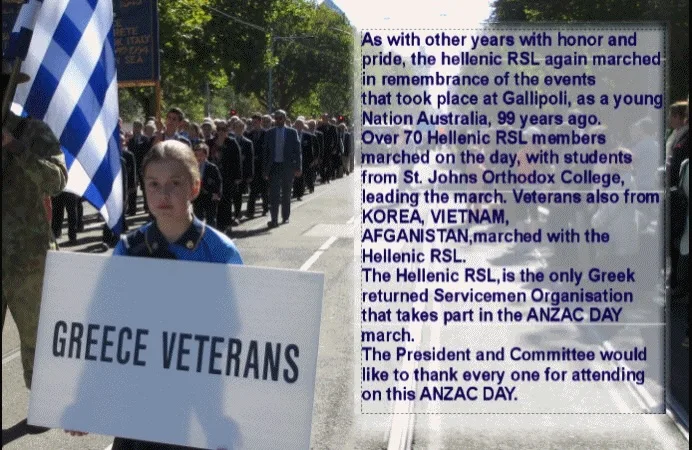
What they did was give their best when they received the call that their country needed each of them. I say “their country,” but we must bear in mind that, especially in the First World War, many conscripts did so much for a country that was not their own by birth or nationality, as many men and women were born in other countries and took Australian citizenship by immigration.
ANZAC Day is therefore a day for all Australians, regardless of religion, race or even place of birth. It is a day to honour the courage and self-sacrifice of old and new generations. It is a day to recognise the selflessness of all those who had decided to sacrifice their lives for Australia so that it could be a country of freedom for all. All this, on this day.
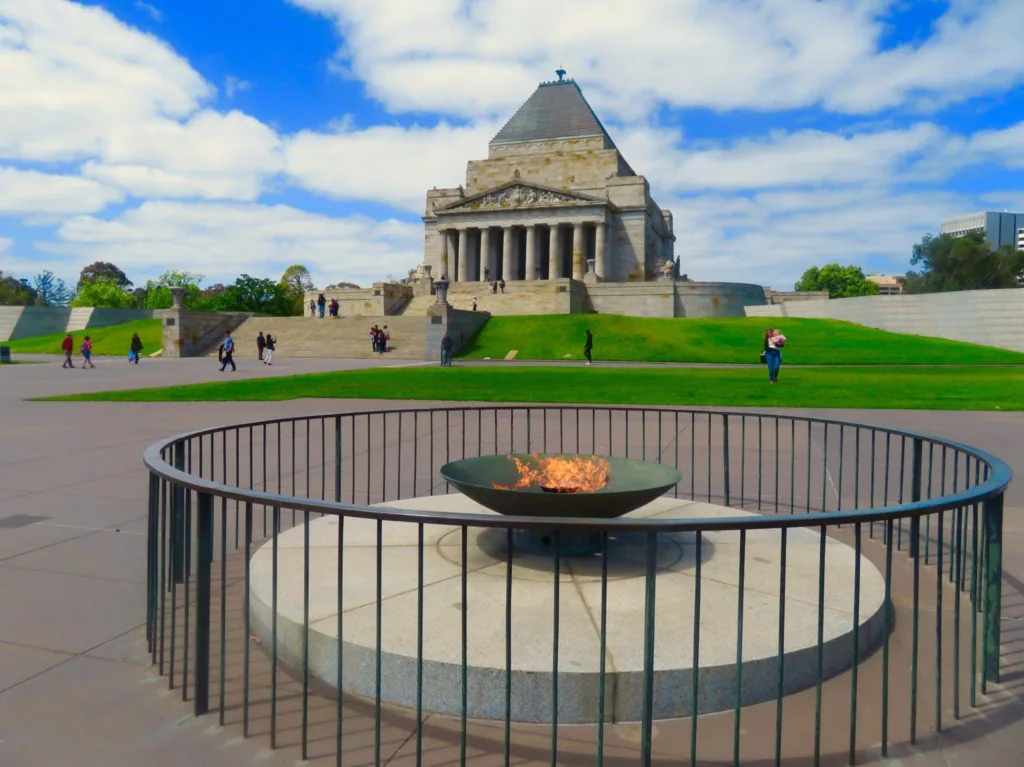
We thank and recognise all those who served in the First and Second World Wars, Korea, Malaysia, Vietnam, the Persian Gulf, Iraq, Afghanistan and other areas where our armed forces are carrying out peacekeeping missions.
ANZAC Day is not a celebration to honour war, as war is not something to be honoured. War is something that is used as a last resort when diplomacy has failed and is the only way for a state to maintain its sovereignty.
On ANZAC Day, we honour the Australian citizens who took part in war operations to protect that sovereignty, regardless of how unpleasant the situation was for them and that there was a risk of losing their lives.
ANZAC Day is not just a date or a campaign of the past, but rather a state of mind. It is a time to reflect on the virtues of past generations of Australians who, in difficult circumstances, displayed courage, discipline, selflessness, self-confidence, ingenuity and camaraderie.
The spirit of ANZAC Day, handed down to us from the battlefields many years ago, will remain evident in our way of life, because it is the image of the soul of our nation.
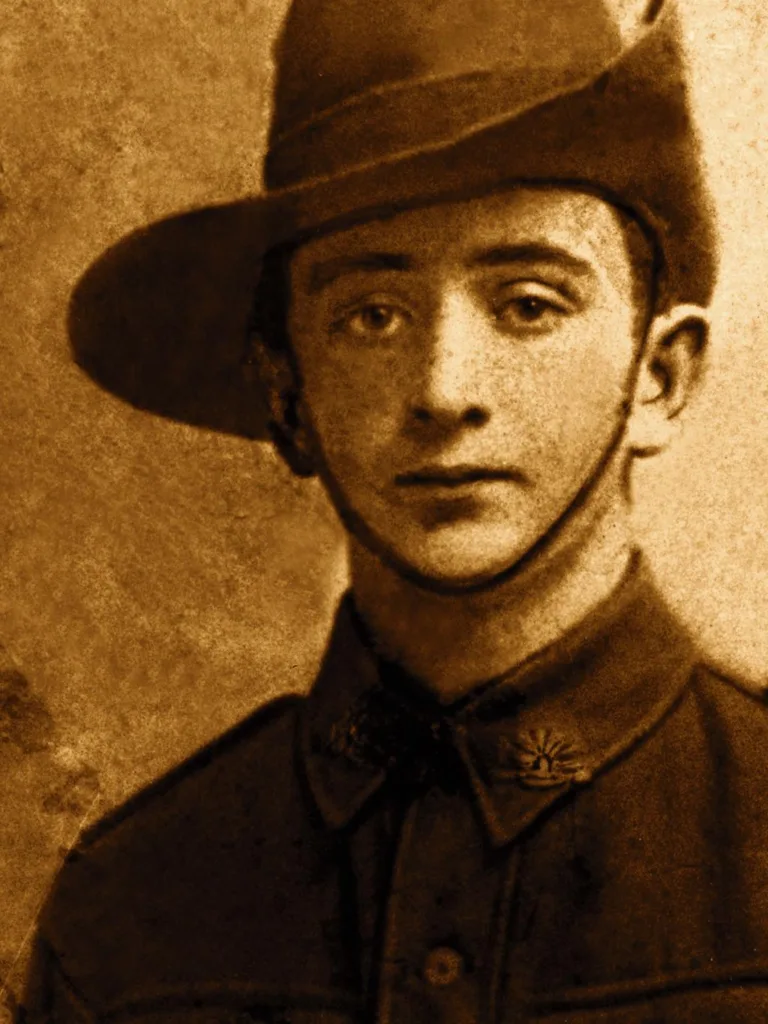
History has shown that, although we are a peaceful people, we have been formidable opponents when we have taken action and also very successful in war operations. On every occasion that Australians have been called upon to defend freedom, they have done so with magnanimity, consistency and effectiveness.
Of course, the events of Gallipoli are more emphasised than others on ANZAC Day.
By the end of the First World War, the Australians, a nation of 5,000,000, had lost 250,000 people, of whom 60,000 had been killed and the rest wounded, a tragic figure as one in 17 of the population was either dead or wounded as a result of the war.
ANZAC Day is more than a national holiday, it is rather a fundamental traditional celebration.
Wherever Australians and New Zealanders find themselves, it is very likely that they will hold some kind of ceremony on ANZAC Day. So strong is the feeling they have for the 25th of April.
The spirit of the ANZACs exists in each one of us, and so let us be guided by it when we face national and individual challenges on our path, and let us strive to be worthy of their sacrifices.
WE WILL NEVER FORGET THEM.
